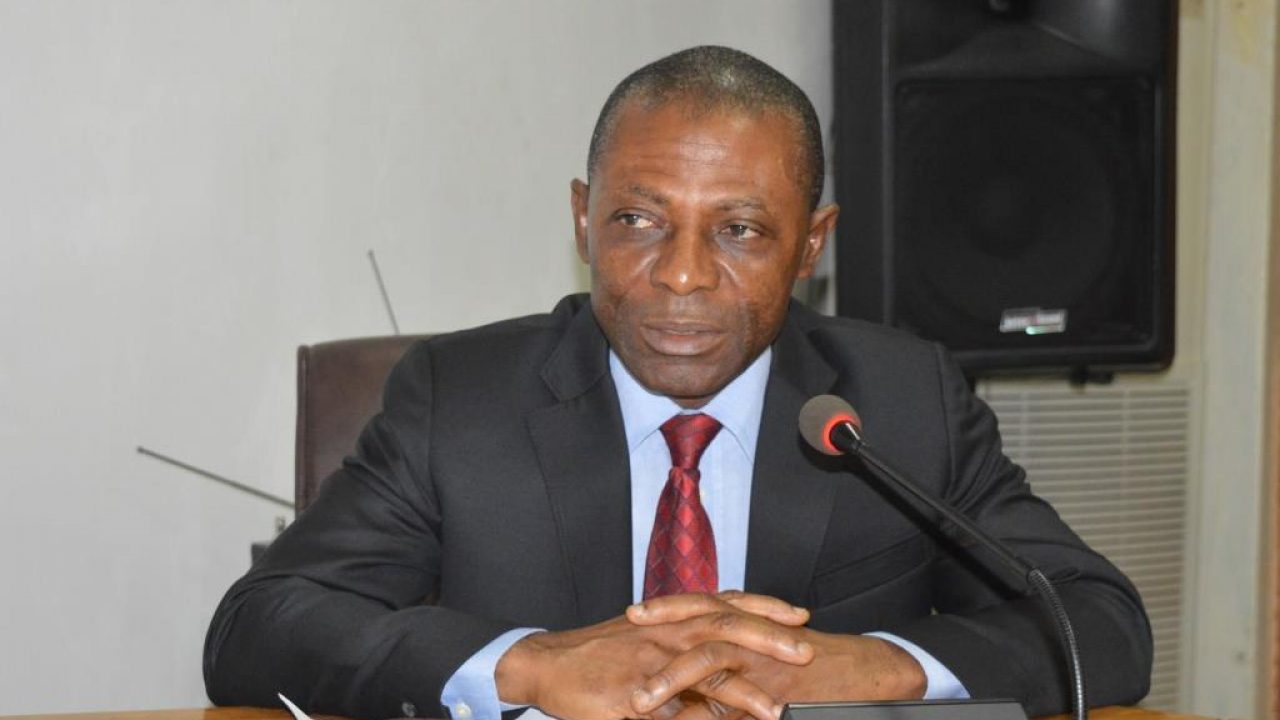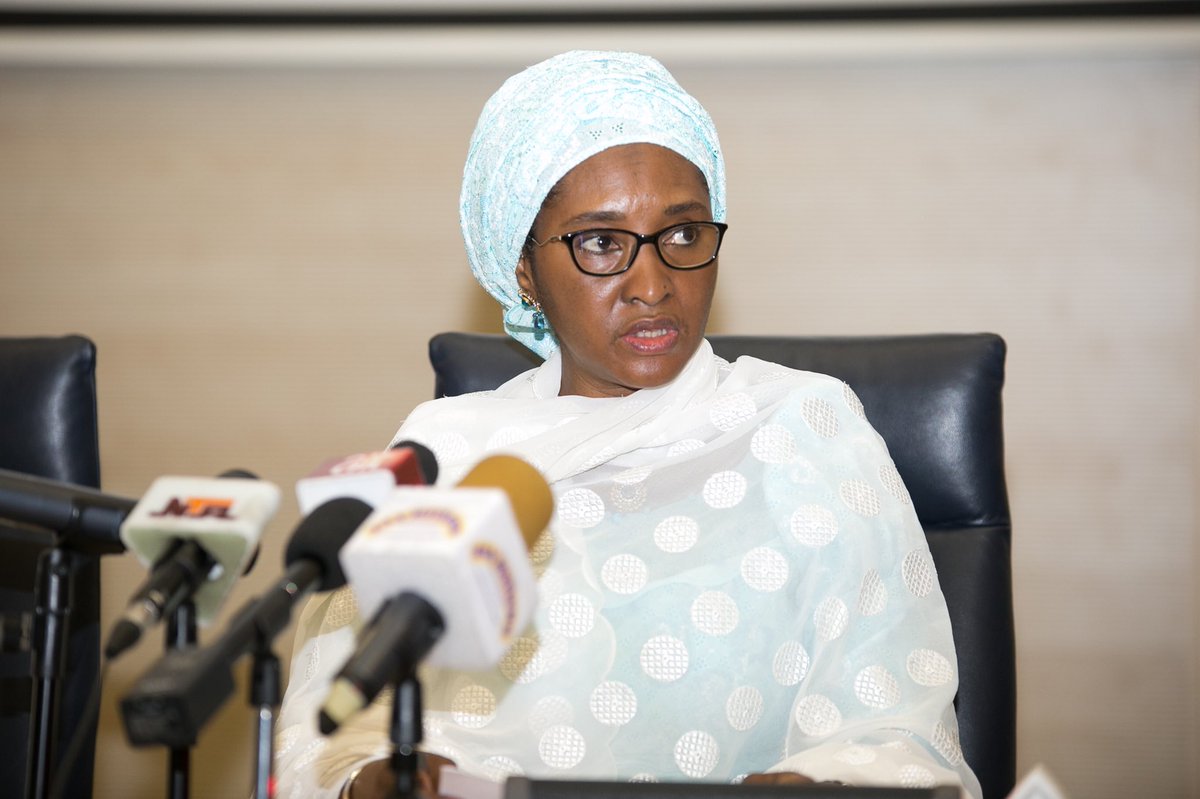The federal government, national assembly and office of the auditor-general for the federation’s acclaimed pursuit of transparency and fiscal discipline is being threatened, The Guardian reports.
The threat is coming from the non-presentation of the 2017 audit report on the accounts of the federation, nearly two years after the end of the fiscal calendar.
The 2016 report came with damning findings against the government and its agencies, including the National Assembly. It showed lapses, serial violations of fiscal laws, governments poor handling of the situation, and the involvement of nearly all agencies.
Despite this, none of the state actors seems concerned about the 2017 report.

Already, sources at the Office of the Auditor-General of the Federation, who asked not to be named, are giving contradictory accounts of developments, an indication that there is no clear-cut information about the 2017 audit report in question.
While one of the sources confirmed that the report has been ready since June, but elections and leadership tussle at the National Assembly delayed its presentations, the source nevertheless refused to say what the office has done with a view to presenting the report after the lawmakers’ inauguration.
Another source said the 2017 report has been submitted but has not been officially posted on the website. The informant refused to give a reason for this, and also affirmed that the 2018 accounts are yet to be submitted by the Office of the Accountant-General of the Federation for auditing, nearly one year after the fiscal calendar.
Months after the leadership of the National Assembly emerged, the lawmakers, presidency and auditor-general of the federation have been silent on the all-important document, leaving the country’s accounting process opaque and opening avenues for fiscal malfeasance.Asked to comment, Garba Shehu, Senior Special Assistant on Media and Publicity to President Muhammadu Buhari, said the matter was outside his purview, urging enquiries to be directed to appropriate authorities.
Nigerians, meanwhile, have begun calling out the government on the perceived negligence, accusing it of complicity, poor accountability and lack of transparency. With almost two years after the end of the 2017 fiscal year, some experts have insisted that no leadership or nation that is sincere about transparency and accountability would fail to correct abnormalities, especially when they have become public knowledge.
In the last report, signed off by the Auditor-General of the Federation, Anthony Ayine, he expressly noted: “The extensive violation of statutory financial reporting obligations by parastatals is of great concern. Stringent sanctions, including withholding financial releases and sanction of the chief executives should be imposed on defaulting agencies who do not render timely accounts, as provided in the constitution and financial regulations.
“The Ministries, Departments and Agencies (MDAs) and their accounting officers are reverting to the situation in the past, where they did not promptly respond to audit observations. I am concerned about this development, which is a major setback to our accountability process.“Where accounting officers fail to respond to audit queries, the implication is that they have no explanation to offer. They should be compelled by the Public Accounts Committees to comply with the audit recommendations on such issues.”
Citing Section 85 (5) of the Constitution of the Federal Republic of Nigeria 1999 (as amended), he admitted that after auditing the accountant-general’s financial statements within 90 days, it is his duty to submit the audit findings to the National Assembly.One of the anomalies in the 2016 report was linked to improper record keeping, resulting in withdrawals and re-submissions.Ayine said further: “The financial statements of the Federal Government for the year ended December 31, 2016 were first submitted to me by the Accountant-General of the Federation on June 30, 2017. Following my preliminary observations, the statements were significantly amended and resubmitted on September 29, 2017.
“Further amendments to the financial statements led to another re-submission on December 29, 2017 and January 16, 2018 before the final version was eventually submitted on March 20, 2018.“In accordance with Sections 85 (2) and (5) of the constitution, I have examined and certified the accounts subject to the comments and observations contained in this report.”
An Abuja-based development consultant, Jide Ojo, however flayed the alleged negligence and breach of rules by the authorities. He queried where the 2017 audit report could be and the delay in its presentation, regretting that government agencies have a penchant for ignoring inquiries by the auditor general.
“The reason behind the public resistance to increase in Value Added Tax (VAT), increase in electricity tariff, payment of administrative fees on money deposits and withdrawals as well as proposed tolling of some Nigerian roads is because of lack of accountability on the part of government. Many Nigerians believe that paying these charges is exploitative as there is no corresponding service delivery. It is a discouraging factor as many see these payments as akin to pouring bucketsful of water into the ocean,” he said.
Government at all levels needs to take anti-corruption issues seriously, Ojo said, urging that all outstanding fiscal and audit reports should be submitted to relevant authorities. According to him, “Prompt actions should be taken against those found to have been indicted by these reports. Defaulting to submit these reports as at when due should carry penalties or sanctions.”
Also, a fiscal governance campaigner, Eze Onyekpere, recalled that Nigeria is signatory to the Lima Declaration of Guidelines on Auditing Precepts (adopted at the IX Congress of the International Organisation of Supreme Audit Institutions-INTOSAI). The declaration states that the concept and establishment of audit is inherent in public financial administration, as the management of public funds represents a trust.
According to Onyekpere: “Audit is not an end in itself but an indispensable part of a regulatory system whose aim is to reveal deviations from accepted standards and violations of the principles of legality, efficiency, effectiveness and economy of financial management early enough.
“It is to make it possible to take corrective action in individual cases, make those accountable to accept responsibility, obtain compensation, or take steps to prevent, or at least, render more difficult such breaches.”He said: “Audit reports are supposed to be timely so that issues raised in them can be resolved in a timely manner. By international best practices, audit reports should be due not later than 18 months after the end of the fiscal year to which it corresponds.
“Thus, the 2017 federal audit report should have been due not later than June of 2019. Timely presentation of audit report facilitates improvements in accountability and transparency as well as the struggle against corruption.”According to Onyekpere, a major component of the purpose of audit is lacking in the Nigerian audit regime because corrective action does not appear to follow individual cases of mismanagement. He said the treasury was hardly compensated and those responsible for violations hardly accept responsibility, leading to a high level of impunity.







